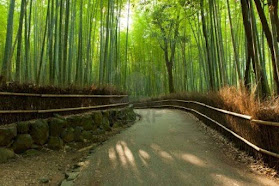Sage Sankara’ has already declared
‘What is the truth?’
~ Atman is Brahman ~ “Atman is the only one ultimate reality or God in truth.
‘What is untruth?’
~ The universe is an illusion. ~ The universe is unreal.
Sage Sankara declared this truth centuries back Then why you are struggling to find out the truth.
Sage Sankara: ~ A buried treasure is not uncovered by merely uttering the words: “Come forth.” You must follow the right directions, dig, remove the stones and earth from above it, and then make it your own. In the same way, the pure truth of the Atman, which is buried under Maya and the effects of Maya, can be reached by meditation, contemplation, and other spiritual disciplines but never by perverted arguments.
Sage Sankara goes on to say: ~ “A sickness of not cured by saying the word “medicine.” You must take the medicine. Liberation does not come by merely saying the word “Brahman.” Brahman must be experienced. Until you allow this apparent universe to dissolve from your consciousness until you have realized Brahman, how can you find liberation just by saying the word Brahman? The result is merely noise. Until a man has destroyed his enemies and taken possession of the splendor and wealth of the kingdom, he cannot become a king by simply saying “I am a king.”
Advaita means the Soul, the Self, which is second to none. The Soul, which is present in the form of the Spirit or the consciousness, is the ultimate truth or Brahman or God. Advaita is the nature of God, the Self. Advaita is God. Advaita is the fullness of consciousness.
Sage Sankara’s wisdom is very much in the tune with the essence of Vedas and Upanishad but Advaitic orthodoxy indulges in non-Vedic beliefs of God and non-Vedic rituals and practices. There is no need to condemn the Advaitic orthodoxy because it is a path meant for the ignorant as per Sage Sankara himself. Do not mix up the two and mess up your quest
The Soul, the Self, is present in the form of the Spirit or consciousness.
Sage Sankara says: ~ there is no need to study the Scriptures, to realize the ultimate truth or Brahman.
~ then why do you indulge in studying the scriptures.
Sage Sankara says: ~ there is no need to study philosophy, to realize the ultimate truth or Brahman.
~then why do you indulge in studying philosophy.
Sage Sankara says: ~ there is no need to indulge in rituals, to realize the ultimate truth or Brahman
~then why do you indulge in rituals.
Sage Sankara says: ~There is no need to indulge in yoga, to realize the ultimate truth or Brahman
~then why do you indulge in yoga.
Sage Sankara says the transparent Truth of the Self, which is hidden by the illusion, is to be attained through the instructions of a knower of Brahman, (Gnani)
~ then why you are sticking a Guru who is not a Gnani.
Sage Sankara says: ~ “The exercise in discrimination between real and unreal and renunciation of the false leads truth realization.
Atman is Brahman. The Atman is the innermost Self is non-dual because there is no second thing that exists other than the Atman. Atman is present in the form of consciousness. The consciousness is the only true reality, and everything else, which appears as form, time, and space are merely an illusion. : ~ Santthosh Kumaar



